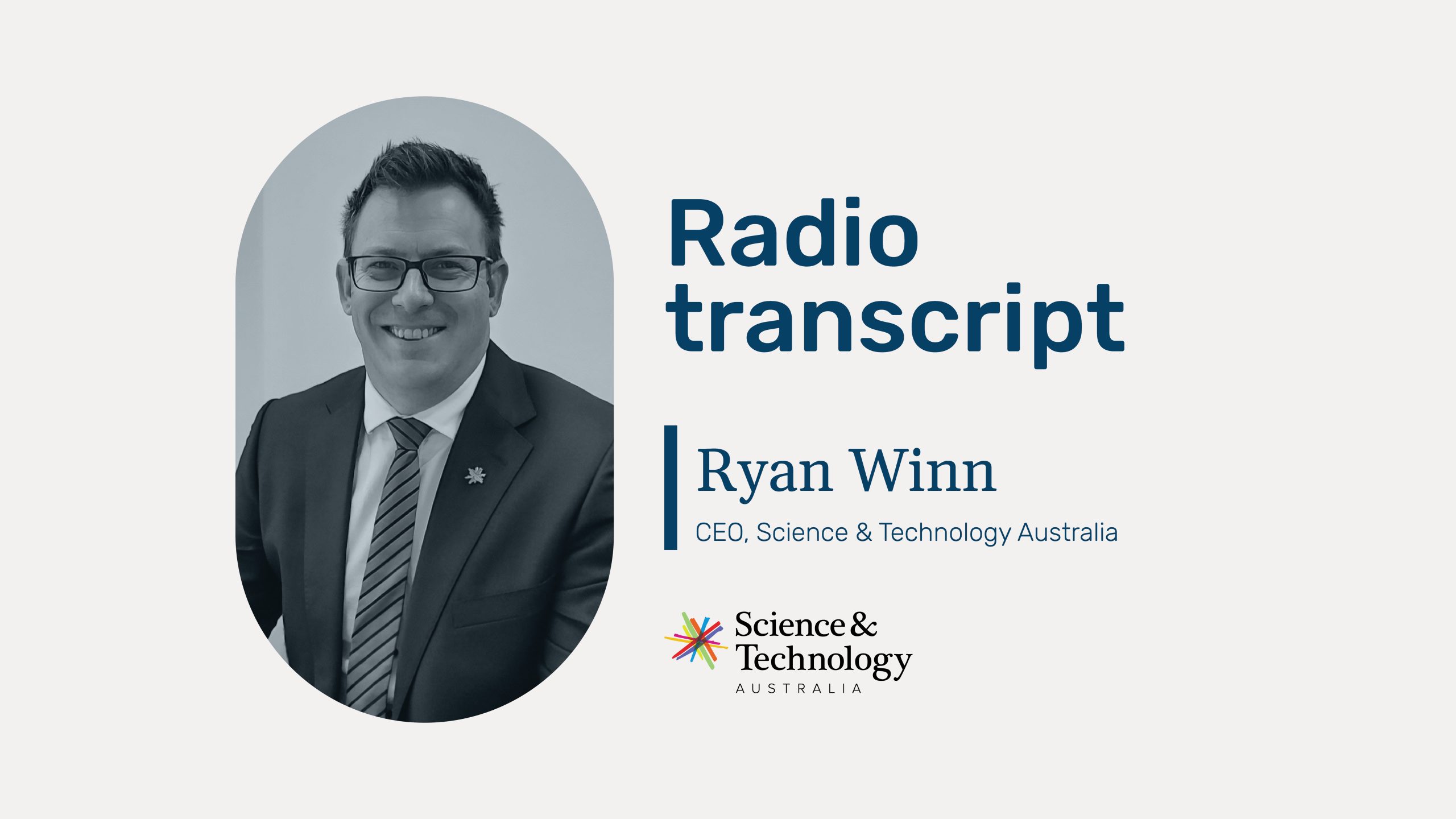Transcript - STA CEO Ryan Winn on ABC NewsRadio with ABC Breakfast program presenter Thomas Oriti discussing the release of the Government's National Science and Research Priorities on 12 August 2024.

Presenter: I note this statement hasn't been updated for quite a while, almost a decade. And the world's changed a lot since the last strategy was released. Pandemic being a big word. Why, in your view, is this framework so important?
Ryan: Well, for Australia, we need a set of priorities that guide us in the research and science we need for the future economy, where we want to be to be innovative, be prosperous and have a great Australia that we all want.
Presenter: What's in today's updated statement? What do we know about it so far?
Ryan: It's great to see that Indigenous Knowledge is particularly central to that, but we know that there's also going to be a strong focus on Net Zero on protecting our environment. As you say, the pandemic was a big issue in the last few years and so we know that there's going to be a focus on the health collectively across all those priorities. It's going to be fantastic to have a strong focus that we can help the country and create the jobs that we want.
Presenter: I hazard a guess, Ryan, that a lot of people might not be aware that we have a National Science Statement. So for those of us not familiar with what it actually is, how's it put together? What sort of consultations have taken place?
Ryan: There are actually two documents. There's a Science Statement and the Research Priorities. And those documents were created by a really large consultation process led by the Chief Scientist Cathy Foley, who did an amazing process involving schools, communities, peak bodies like my own, state governments and the federal government as well to really harness the ideas of everyone and drill down to what are the things that are really most important for the nation and what are the outcomes we want from those areas? And what is the research we should be undertaking under those?
Presenter: Was your organisation involved in forming the priorities that we've been chatting about?
Ryan: Most definitely. And we've been really pleased by the open nature of the Chief Scientist and indeed, the Government and Minister Husic in working with us in refining those to something that's really practical and useful.
Presenter: Ryan, there's a lot in it. What do you think? This might not be easy to answer, but what do you think is the key priority?
Ryan: I don't want to pick one because every single one of them has really key aspects and will touch different people in different ways. And I think that's the important thing, we need to focus on our strength of the country, and there are areas that we need to build our capability that are new. There are new areas of science and issues for the country. But what we do need to do is focus on a number of key ones to make sure we have the knowledge and indeed then the industries and the businesses and the jobs that follow from those.
Presenter: I want to chat about one key one, particularly when it comes to having that knowledge I mentioned in the introduction. That's the focus on Indigenous Knowledge systems. Can you give us an example of how the nation can better integrate that First Nations connection to Country for the benefit of all Australians?
Ryan: I think it's really, and what I would say is importantly, actually weaved through all the priorities. Indigenous knowledge isn't something that sits as an aside. There are deep perspectives that go across all the priorities we have. A really good one is around health engagement. We know that co-designing services, particularly for vulnerable groups and others and innovative service delivery, is really critical, and so working deeply with those communities to understand the sorts of ways that health services best benefit them and work together. And equally, we've seen amazing research around carbon sequestration in savannah burning, and you know that we can work together to understand how to manage the ecology better, but also then, to understand how we can actually improve the environment through the sequestration of carbon is a fantastic outcome. And we wouldn't know that unless we work deeply with Indigenous scientists and knowledge holders.






